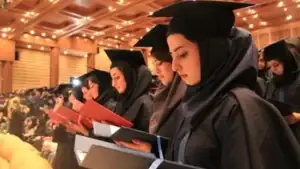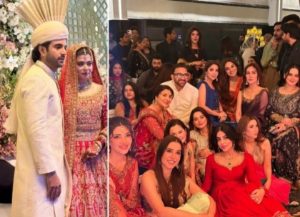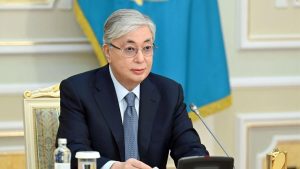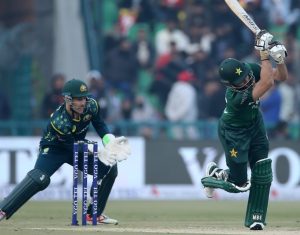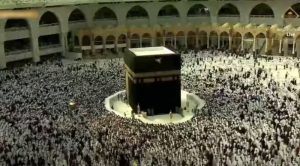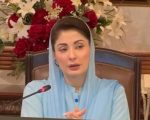Sadiq Khan, the son of a Pakistani bus driver, is really selling like a hot cake in news these days after having been elected the first Muslim Mayor of London. He fought elements like Islamophobia during the mayoral campaign, while elements in British media kept painting Muslims as polygamous and sexist homophobes in documentaries like “What British Muslims Really Think?” Khan’s victory became just another reason for religious minorities to believe in democracy: a system that provides them an equal chance to prevail.
However, in all this, several commentators are apparently mocking the religious rigidness of Muslims, suggesting that no city in Muslim would have elected a Christian as its mayor. Asserting, as if only western societies were enough flexible to greet a public representative from a minority group. But, this is not true. Non-Muslims have been elected to high offices in Muslim world for decades -doing the same what Sadiq Khan just did in a Christian majority state.
Bahrain, a state with over 70% Muslim population, proved itself enough open-minded to elect a Christian woman named Alees Samaan as custodian of its upper house of Parliament, the Consultative Council, in 2005. She was also first ever woman to takeover this high office in the country. And even three years before that, Alees Saman was also nominated as member of country’s Shura Council.
In 2014, Turkey’s city of Mardin also elected a Christian woman as its mayor. Though many small cities of the country have been ruled by Christians, Februniye Akyol was first ever Christian woman to administer Turkey’s one of the thirty major metropolitan cities. Turkey, despite having a liberal constitution, has almost 97% Muslim population.
Another Muslim majority state Egypt, which hosts over 90% Muslim citizens and has an Islamic constitution, had a Christian Foreign Minister for over 14 years. Boutros Boutros Ghali also served as United States Secretary General afterwards. Likewise, world’s most populous Muslim state Indonesia also had Christian governor -named Basuki Tjahaya Purnama- its city of Jakarta.
Some Christian politicians even became head of the Muslim majority states in recent times. Senegal and Lebanon are the most prominent to be mentioned in this list. Léopold Sédar Senghor, a Catholic Christian, remained president of Senegal for some 20 years. Similarly, another Christian named Michel Suleiman held Lebanon’s president office from 2004 to 2008.
Currently, Pakistan’s Federal Minister for Shipping is a Christian named Kamran Micheal. Pakistan is an Islamic Republic and has an Islamic constitution as well. In Palestinian territories as well, Janet Mikhail is serving as Mayor of Ramallah city. He is a Roman Catholic.
As a matter of fact, Pakistan also has a fixed number of seats reserved for minorities in its local bodies and Parliament. These seats cannot be filled by Muslim members, in any case. The same is the case in Iran as well, where as many as five seats in Parliament are reserved for recognised religious minorities -Jews, Christians and Zoroastrians.
In Pakistan, non-Muslims have also been holding other high offices since 1947. Immediately, after the country’s independence Jamshed Nusserwanjee Mehta, a Zoroastrian by his religion, was first ever to be elected as Karachi Mayor. C E Gibbon, a Christian politician, also held the office of Deputy Speaker National Assembly from 1955 to 1958.
Pakistan’s judiciary maintains a long history of encouraging minorities to serve the country. A Christian named Alvin Robert Cornelius served as fourth Chief Justice of Pakistan from 1960 to 1968. In the following years, he also became country’s Law Minister under President General (retd.) Yahya Khan. Later on, Justice (retd.) Dorab Patel, a Parsi by his faith, served as Chief Juctice of Sindh High Court. He was also promoted to the Supreme Court of Pakistan.
A Hindu by religion, Justice (retd.) Rana Bagwandas also became Chief Justice of Pakistan of, when former President Pervez Musharraf had deposed Justice (retd.) Iftikhar Mohammad Chaudhry. In the following years, he also took over the office country’s Election Chief and head of Federal Public Service Commission.
In the field of politics, once again, Rana Chander Singh was elected as Member of Provincial Assembly for seven times. He was country’s first minority legislator to win the elections independently. He worked as Pakistan’s Minister of Science and Technology, Minister Revenue and Narcotics Affairs and Minister for Agriculture and Revenue in different tenures.
Mr Jamshed Ardeshir Marker, who is regarded as Pakistan’s most successful Ambassador and holds a record of being world’s longest serving diplomat in the Guinness Book of Records, is also a Parsi by his belief.
To mark the concluding words, it is to be said that no religion by its spirit teaches bigotry, nor such attitudes are forged at any school. This is something that is molded by societies, as an overall element.
It is worth appreciation that London, the capital city of a country whose constitutions says that a Monarch has be a Protestant by religion, has elected a Muslim as its Mayor on the basis of his personal qualities and policies. But, meanwhile, it is highly irresponsible to assume that Muslim countries have kind of religious restrictions to occupy public offices, without digging out the facts. As renowned American journalist Stephen H Segal once suggested “Facts are our friends. The longer we as a society insist on ignoring them when they get too uncomfortable, the more we erode our potential to be truly great.”

